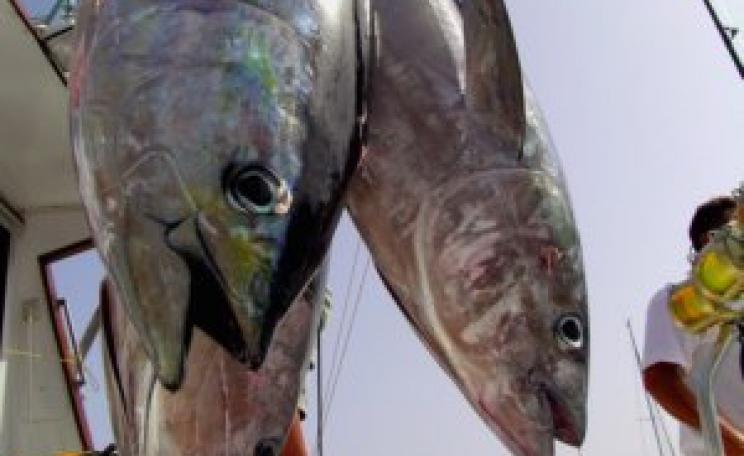It remains to be seen whether farm-animal-acquired strains of MRSA will soon be affecting people in the UK
It is a landscape of clinical efficiency. Flat, square fields, neatly interspersed with row upon row of anonymous factory units, greet the passer-by. Behind the silent facades, every building contains thousands of farm animals. It could be veal calves, turkeys or chickens, but in this region of the Netherlands, close to Eindhoven, it is predominantly pigs. The Netherlands has a higher concentration of farm animals per square kilometre than any country on the planet, and these farms are now at the frontline of a new battle against MRSA.
‘Community-acquired’ or ‘farm animal’ MRSA has a grim track record. Commonly causing skin infections, this strain of bacteria can also cause pneumonia, bone infections and endocarditis. And in the Netherlands it is spreading. ‘What we have seen here in our region is a rise of MRSA-positive patients, from an average of 40 or 50 MRSA-positive patients in this entire region in a year to last year 224, and about 60 per cent of those are animal-related MRSA,’ says Mireille Wulf, a microbiologist based in Eindhoven.
Recent studies have shown that between 30 and 50 per cent of all pig farmers in the Netherlands carry the bacteria. This growing trend has so worried the health authorities that they have brought in legislation to stem it: all pig farmers entering a Dutch hospital must now go into quarantine upon admission.
And it’s not just the hospitals that are concerned. Willie Buysse is a vet who works on pig farms in the south of the Netherlands. ‘If I have to go to hospital I would like to be helped,’ he says. ‘If they refuse me, I have a problem. And one can infect other people and animals, so it is something to worry about.’
The common factor in all this is antibiotics, says Dik Mevius, a professor of microbial resistance at the university of Wageningen, who is studying the recent upsurge in MRSA outbreaks. ‘The typical feature of the animal-derived MRSA that is spreading in animals right now is that it is always tetracycline resistant. Tetracyclines are the most used antibiotics, so it's quite likely that the use of tetracyclines is one of the reasons that these MRSAs are commonly present,’ he says.
Campaigners opposed to factory farms point to the brutal and confi ned conditions on pig farms – such as the controversial use of restraining stalls for sows – that necessitate the use of antibiotics in the first place.
‘They [the animals] are so stressed and bored that they get sick, their physical health is suffering from their living conditions and the only solution that farmers see is to give them antibiotics instead of changing those living conditions,’ says Natasja Oerlemans, a representative of the Animal Party in the Dutch parliament. ‘So you see a tendency in the Netherlands that the farms get more intensive, they get larger; that a farmer has less time to spend with individual animals and they use antibiotics as a treatment for animals to prevent them from getting sick.’
Oerlemans claims industry and government alike have played down this link between inhumane living conditions, animal sickness and the preventative use of antibiotics. ‘From our experience, the ministry of agriculture is acting more like a marketing manager of the meat industry,’ she says, ‘and that’s what worries us more and more. This enlargement and intensification of farms is causing a great risk. It’s a time-bomb for citizens.’
The Dutch pig industry has a lot to lose. More than one million tonnes of cheap pork is exported from the Netherlands every year, worth in excess of €2 billion to the rural economy. According to the latest report from the British Pig Executive, cuts of meat from 90 per cent of the pigs slaughtered in the Netherlands will end up on British plates, accounting for 12 per cent of the total pork consumed in the UK each year.
The key factor that makes Dutch pork so attractive is the low price, a product of large industrial farms that utilise modern methods of husbandry to minimise overheads and maximise output. These economies of scale also create ideal conditions for the potentially rapid spread of disease, however; illnesses, the
pig industry argues, that would be impossible to treat without the regular use of antibiotics.
Henk Boelrijk, a representative of the Dutch pig association is unapologetic: ‘In general the health situation on Dutch pig farms is good. If bacterial diseases occur, antibiotics are needed to cure them as fast as possible. With diseased pigs you need many kilos of antibiotics. Pig farmers and the public do get frightened; many animals means using a lot of medicine.’
Quite how much is another matter. The Ecologist discovered that sows in the Netherlands are given antibiotics an average of 22 times per year, and nationwide the entire livestock industry consumes in excess of half a million kilograms of antibiotics every year. This is between four to six times the dosage of antibiotics that Dutch people typically receive.
It is a situation that frustrates the Soil Association. ‘It is simply not acceptable to allow methods of food production that take away one of the biggest advances in medical science ever, and that’s our ability to treat serious infections in the human population,’ says Richard Young, a Soil Association advisor and farmer, based near Bristol.
It remains to be seen whether the spectre of farm-animal-acquired strains of MRSA will soon be infecting people in the UK on the scale seen in the Netherlands. Last year three people in a Glasgow hospital were found to be infected with MRSA ST398, one of the same strains of MRSA spreading from pig farms in
the Netherlands. In this instance, it was impossible to trace the source of the infection.
The Soil Association claims, however, that under NHS operating procedures, tests to identify farm-animal strains of ‘community-acquired’ MRSA are not routinely carried out in hospitals unless patients contract blood infections; so it is possible that outbreaks of community-acquired MRSA across the country may not be recorded at all.
‘The Government is really not taking this problem seriously enough. We need urgent testing done to see how big this problem may already be in the UK,’ says Young.
In the Netherlands, Uden-based pig farmer Hans Donkers has seen both sides of the debate. He lost his herd to swine fever in the 1990s. Instead of replacing them, he switched farming techniques from a conventional intensive system to an organic one. When the Ecologist visited, he was quietly watching his sows as they explored the field by his house, lazed on the grass, dug holes and evaded the occasional approaches of the resident boar.
‘I think that the pigs are healthier in the organic pig farming because they can explore their own natural behaviour,’ he says. ‘The pigs have more natural resistance. What I do differently to before is to separate a [sick] pig so he can rest and recover better, and what I also do is use herbs to treat a pig. Before I used antibiotics. The pigs are healthier, they have less stress and also the bill of the vet is very little. It’s a very nice way of keeping pigs.’
It remains to be seen whether farm-animal-acquired strains of MRSA will soon be affecting people in the UK







